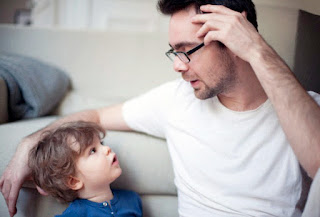Why parents should talk a lot to their young kids — and choose their words carefully

By Valerie Strauss September 30th, 2015 In 1995, the now famous Hart/Risley study was published on the impact of language on young children, revealing that low-income children are exposed to 30 million fewer words than their higher-income peers before age 3. The study, and others that followed, found connections between poor early literacy skills and lifelong academic, social and income disparities, leading to a number of initiatives to help low-income parents understand the importance of language. Here is an article adapted from the recently published book “ Thirty Million Words: Building A Child’s Brain .” The book, by Dana Suskind, is an extension of the research program she founded and directs at the University of Chicago called the Thirty Million Words ® Initiative, which is dedicated to helping close the achievement gap by helping parents improve their home language environmentthrough the power of parent language. Suskind is also a professor of surg...

